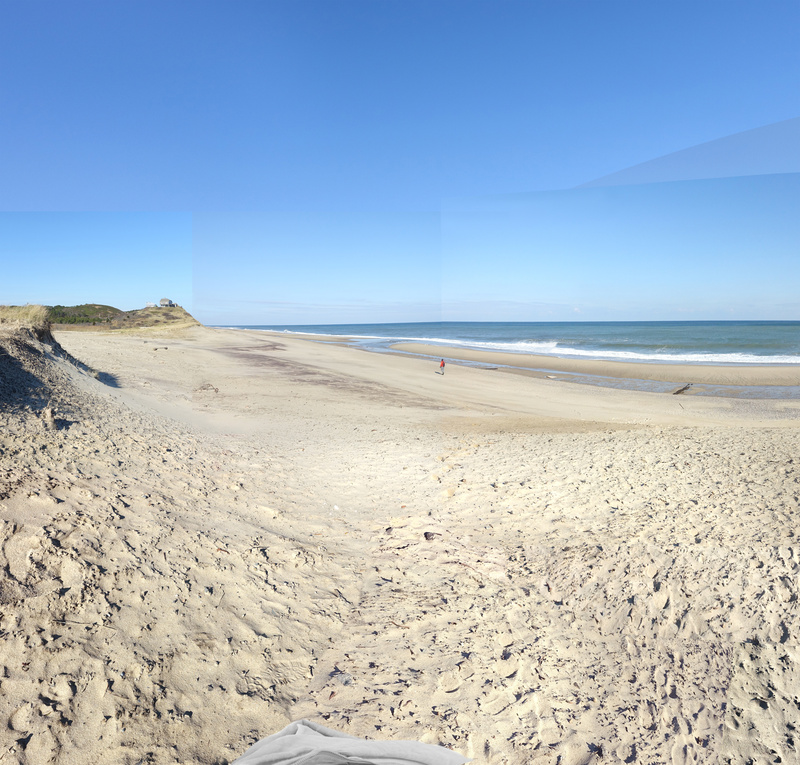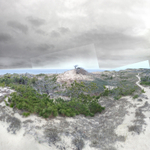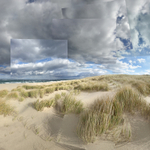The Beach, Cape Cod (#3)

Thoreau often used the word "desert" to describe the beaches on the outer Cape.
This is Ballston Beach, Truro. A walker heads out on a clear but brisk November afternoon. Coastal erosion is evident in the dunes and cliffs, and houses are perched facing the onslaught. I wonder how many more years these structures can stand against the inevitable. I see a large piece of driftwood resting in a shallow before it is perhaps tossed back to sea.
In Thoreau's time hundreds of ships, their cargo, and passengers were broken by the weather to be thrown ashore or lost. "Wreckers" as they were called flocked to retrieve and salvage what they could. We might call this "recycling" or something else. Booty strewn on this desert could be spied from a distance as the wrecker's eyes were keen. This was a common profession in these parts, with survival dependent on clear vision and quick action. Wood was particularly valuable.
Thoreau of all people had an eye. In the woods and fields his observations are legendary and honed into an art that has not been matched.
In the Outer Cape's pared-down and even terrifying environment, Thoreau was fast able to navigate the impact such a place might have on the human temperament. On a stagecoach ride to Brewster Thoreau had proximity to watch the natives at close range. He writes "I was struck by the pleasant equality which reigned among the stage company, and their broad and invulnerable good humor" with one fellow passenger Thoreau described as "a broad, red-faced Cape Cod man who had seen too many storms to be easily irritated..."
This is Ballston Beach, Truro. A walker heads out on a clear but brisk November afternoon. Coastal erosion is evident in the dunes and cliffs, and houses are perched facing the onslaught. I wonder how many more years these structures can stand against the inevitable. I see a large piece of driftwood resting in a shallow before it is perhaps tossed back to sea.
In Thoreau's time hundreds of ships, their cargo, and passengers were broken by the weather to be thrown ashore or lost. "Wreckers" as they were called flocked to retrieve and salvage what they could. We might call this "recycling" or something else. Booty strewn on this desert could be spied from a distance as the wrecker's eyes were keen. This was a common profession in these parts, with survival dependent on clear vision and quick action. Wood was particularly valuable.
Thoreau of all people had an eye. In the woods and fields his observations are legendary and honed into an art that has not been matched.
In the Outer Cape's pared-down and even terrifying environment, Thoreau was fast able to navigate the impact such a place might have on the human temperament. On a stagecoach ride to Brewster Thoreau had proximity to watch the natives at close range. He writes "I was struck by the pleasant equality which reigned among the stage company, and their broad and invulnerable good humor" with one fellow passenger Thoreau described as "a broad, red-faced Cape Cod man who had seen too many storms to be easily irritated..."

|















